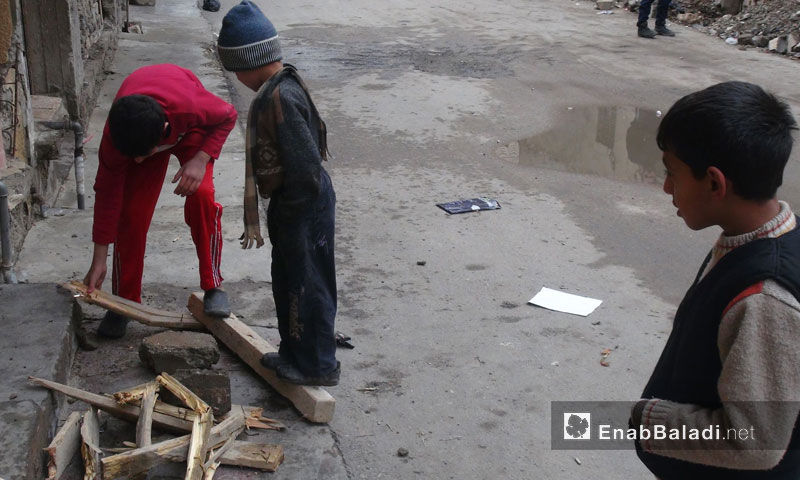The walls of “Zaki al-Arsuzi” school, in the al-Qusor neighborhood in Deir ez-Zor, have been covered with a layer of painting and filled with daily slogans about education and cleanness, turning into an integral feature of the restoration and reconstruction phenomena in the city. However, these attempts failed to develop the educational reality in the city or even to beautify the accumulated problems, lurking under the fresh paint.
“Painting from the whole world would not be enough to cover the destruction of the educational system,” the former teacher Abu Hassan (64 years old) said, considering that Deir ez-Zor “has entered a dark tunnel; and it will take dozens of years to exit it.”
The people affected the most by this failure, according to the former teacher, are schools’ administrative staffs, whether in the Education Directorate or in the schools, explaining “that the criteria is now loyalty to the regime and violent promotion of its ideas, but not the scientific qualifications or practical skills, for corruption and chaos have penetrated the Directorate of Education in Deir ez-Zor.”
“Tragic” Conditions
The number of returnees to the city of Deir ez-Zor has increased, especially employees, in the a few days that followed the Syrian regime’s total control over the city, the last part of which was Hamidiya neighborhood, early in November 2017.
Most of the people who have been interviewed by Enab Baladi shared the same opinion about the educational process in the city, including Um Butoul (59 years old woman), who functioned as a former principle of a school in Deir ez-Zor, who said that many qualified teachers and administrative figures, “have been marginalized without job opportunities.”
Um Butuol believes that despite the fact that “some of these people have the will to save what they can save of the educational process, they are in a total state of impotence because of the security pressures and bureaucratic restrictions.”
The former school principal believes that the current destruction and the war do not sufficiently justify chaos, corruption and the helplessness in the educational sector, describing the students’ conditions as “tragically sad.”
She also points out to the reality of the city’s schools these days, saying “imagine entering into a class and seeing 100 students in front of you, how would you feel as a teacher, and how would the students listen to you or understand what you are saying?”
According to the principal, the educational staffs are suffering from the chaos of the assignment and sorting processes, especially after the decision that has been issued by the Cabinet about the necessity for the teachers in Deir ez-Zor Education Directorate, who have been displaced out of the city, to return to their jobs.
Prior to 2011, Deir ez-Zor incubated more than 30 schools, but, today, only ten are functioning according to estimates by activists.
Students’ Parents Bear Witness
Abu Myasar, 49 years old and a father of a student, tells Enab Baladi his painful story, “Every day, I take my son to school and bring him [when he finishes],” speaking of the risks that students have to deal with on their way to school, “including the soldiers’ harassment, verbally and physically.”
He confirms that “some teachers send the students out of the school to do them external services,” adding that “I have to homeschool my children and I do not really count on the school, which many people are doing because they do not trust the schools that became a place where students meet with their mates only.”
According to “Abu Qasem,” a joyful face to the tragedy “lies in the idea that the families and students do still want education, despite the difficulties surrounding them, “I get over joyed when my children insist on going to school to learn even if on the light of a candle.”
The man does not deny that there are a few teachers who are honestly functioning, pointing out that “they are helping students to preserve the profession’s honor in a time where every value has been violated without the slightest sense of shame.”
As for the students, the most prominent victim of the situation examined above, they have divided opinions about the school; some are happy about going back to school in spite of the difficulties that are facing them; others have complained about annoyance at school, difficulty to understand and the lack of services in the crowded classrooms.
The Syrian regime’s government has forced many of the employees’ families to return to the city of Deir ez-Zor, which led to many difficulties that complicated the lives of people and doubled the services and medical needs, in addition to educational ones, forming thus a pressure on the remaining facilities in the city.

